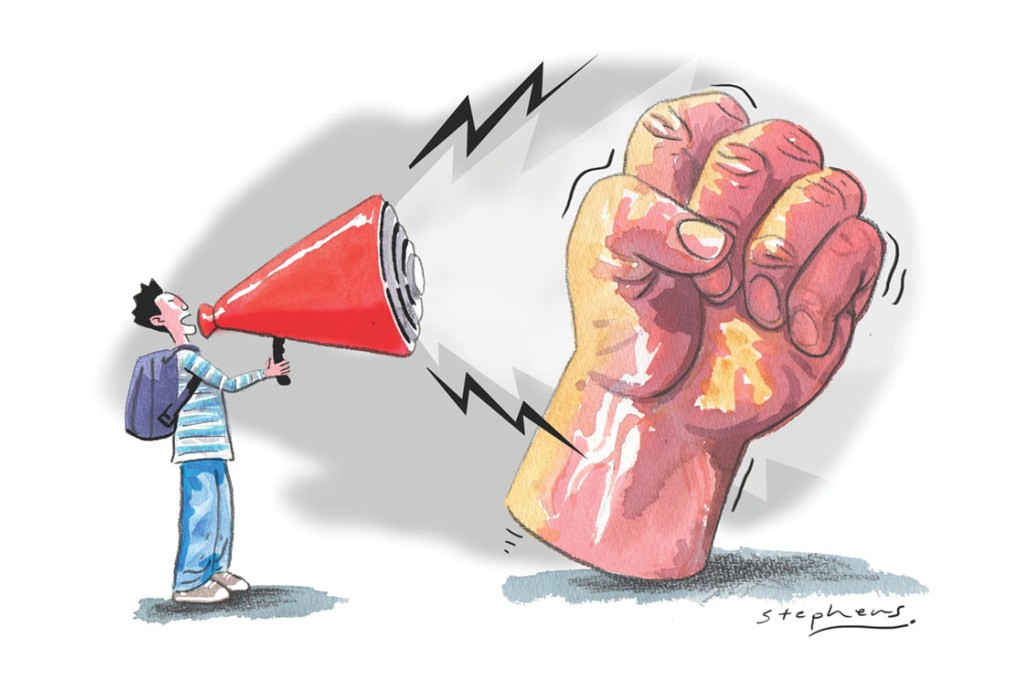Hong Kong and its people will continue to speak up until they are heard
Larry Au says bleak pronouncements about Hong Kong's future do not account for a city that thrives on reinventing itself, and a generation of inspiring youth who dare to speak truth to power

The weeks following Beijing's decision on the political framework for the chief executive election have been characterised by collective shock, disbelief and anger among pro-democracy activists and their sympathisers in Hong Kong. Radio and television current affairs shows have been full of angry shouting as the public phoned in to air their discontent. Newspaper articles talked again of how "the city is dying" and questioned whether it was time to "leave dear Hong Kong". Even some pro-establishment politicians expressed their surprise at the restrictiveness of the ruling.
It is hard under these conditions not to be pessimistic about Hong Kong's future, now that genuine electoral reform in 2017 seems next to impossible. But there is still reason for hope.
Saskia Sassen of Columbia University wrote an article last year titled "Does the city have speech?", where she proposed the notion that cities have a way of speaking - in the abstract sense - to their inhabitants through interactions between the concrete and social elements. An example she gives is that of the traffic jam, where a car is brought to a sudden halt as it exits a highway. This is a way for the city to tell its inhabitants that the mass use of cars, or a particular configuration of infrastructure, is unsustainable. According to her, it is because of this capacity for speech that cities are able to resist forces that threaten their very existence, as well as to outlast more rigid and closed systems such as nation-states, corporations and empires.
Sassen argues that what makes cities resilient are two characteristics: complexity and incompleteness.
Complexity rests on interdependence. When "hard" infrastructure such as a power grid fails in a city, it affects residents indiscriminately, regardless of race, religion or other markers. The same applies to "soft" infrastructure, such as when the rule of law comes under threat, as this affects small businesses and multinational corporations alike.
A political system modelled after principles of propertied enfranchisement prevalent in 19th-century Britain and America, aimed at protecting the interests of a minority economic elite, is not only morally wrong, but simply bad policy. It does nothing to solve the deep-seated inequalities in our society that our current electoral system perpetuates. Sooner or later, more will realise this.
Already, within the past few weeks, contrary to what NPC Standing Committee chairman Zhang Dejiang believes, we have seen a shift of public opinion against the National People's Congress decision. According to a recent poll by the Chinese University of Hong Kong, 54 per cent of the public now support a veto of restrictive reform proposals, in comparison to just 29 per cent against such action.